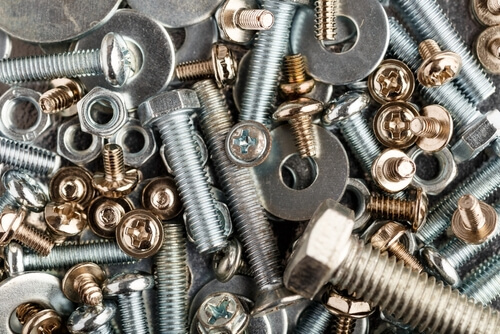
There’s nothing worse than a rusty screw impacting the longevity or quality of a project.
Whether you’re a professional tradesman or a frequent DIYer, the right choice of screw can make the difference between a long-lasting application and repairs in the near future.
That’s where rust-resistant screws come in—these help to keep the enemy of durability at bay, perfect for permanent applications, especially outdoors. Stick with us as we walk through the best rust-resistant screws for your next project.
Why Does Rust Resistance Matter in Fastening?
When it comes to construction and maintenance frameworks, screws are the backbone of their structural integrity.
So when these screws become compromised, there’s only so much force and pressure a structure can handle until it collapses. Rust occurs when screws are exposed to moisture and air, causing them to oxidise.
This eats away at the metal, weakening the integrity of the structure and making it more prone to snapping. Once one component becomes loose, this has a domino effect on the others around it.
Leaving a rusty screw too long can make the removal and replacement process more difficult. If it becomes fused to the surrounding material, removing it can cause more damage, leading to costly repairs.
Key Features to Look for in Rust-Resistant Screws
There are a few key features to look for when choosing a rust-resistant screw for your project. To ensure your application can survive through harsh environments, aim for the following:
- Robust material composition: Materials such as stainless steel and brass offer great resistance to corrosion. The former is ideal for outdoor projects and marine applications, while the latter is more suited to indoor applications. Aluminium is also a great option for light-duty applications.
- Rust-resistant coatings: If the base material is not rust-resistant, a zinc plating or ceramic coating can protect the screw from corrosion. Zinc is ideal for general applications, while ceramic can withstand exposure to saltwater, chemicals, and high humidity. Hot-dip galvanisation and epoxy coatings are also ideal for outdoor use.
- Corrosion resistance rating: Screws with high resistance ratings (500 to 1,000 hours in the ASTM B117 salt spray test) are suitable for outdoor and marine use. Also, look for screws that meet ISO 9227 standards, as they offer reliability in demanding environments.
- Head and thread design: Countersunk or cap-head screws minimise moisture exposure when combined with washers or rubber gaskets. Threaded shank screws prevent water from seeping into the surface material, providing rust resistance.
3 Types of Rust-Resistant Screws for Different Applications
Stainless Steel Screws
Stainless steel screws are a popular choice for applications susceptible to rust.
These contain at least 10.5% chromium, which reacts with oxygen to form a thin, invisible layer of chromium oxide on the surface of the screw. Due to this, they are the main choice for outdoor applications, resistant to moisture damage and oxidation.
Ideal applications
- Outdoor decking
- Garden furniture
- Kitchens and bathrooms
- Marine and coastal projects
Brass Screws
Brass screws are a top choice for decorative applications due to their aesthetic appeal and moderate rust resistance.
Made from an alloy of copper and zinc, these aren’t as strong as stainless steel screws, yet they offer rust resistance for applications where a sleek look is desired. Its natural resistance to corrosion makes it ideal for indoor applications with fluctuating temperatures.
Ideal applications
- Furniture and cabinetry
- Musical instruments
- Electrical and electronic components
- Marine applications
Galvanised Screws
Galvanised screws offer a great level of rust resistance, perfect for budget-friendly applications and general use.
Coated with a layer of zinc, this provides a protective barrier against harsh elements, serving well in outdoor applications. Their low cost makes them popular for DIY installations and general housework.
They also provide great load-bearing capacity, perfect for structural applications.
Ideal applications
- Fencing
- Roofing
- Garden furniture
- Landscaping projects
FAQ’s
When should I use stainless steel screws over galvanised screws?
Due to their superior rust resistance, stainless steel screws should be used for outdoor applications and marine environments.
Galvanised screws are best for DIY furniture assembling.
Can I use rust-resistant screws with other metals?
When using rust-resistant screws with metals such as aluminium, there is a risk of galvanic corrosion.
To avoid this, place a barrier between your stainless steel or galvanised screw and the metal surface to reduce contact.
Do rust-resistant screws require maintenance?
To ensure your rust-resistant screws maintain their quality for as long as possible, examine them periodically and apply a protective sealant for added protection.
Why are stainless steel screws more expensive than galvanised screws?
Stainless steel screws are more expensive since they are constructed of premium materials that are naturally robust and rust-resistant.
Galvanised screws are a more cost-effective choice for everyday usage because, although still resistant to rust, they are coated with zinc to shield the underlying steel.